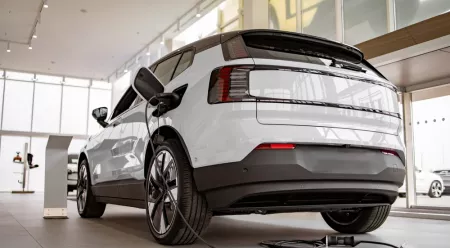One of the most common mistakes that start-ups make is disregarding the need for insurance in their enterprises. And given the high risks involved such as hiring drivers who are inexperienced in driving in certain terrains, business operations can be halted due to accidents. Take, for instance, a startup that only has one truck that is used for all its major operations. If this truck is grounded due to an accident, the business may be forced to spend huge amounts of money to resume operations. But with auto insurance, the startup can resume operations as soon as the insurance company sorts the claims which are filed.
What are the different types of car insurance that startup entrepreneurs can undertake?
Commercial auto insurance policy
This is an insurance policy that provides coverage for trucks, cars and vans used in business operations. Vehicles used in the running of business operations including work vans, box trucks and service utility trucks need this coverage. Also, regular cars used in the running of a startup business require commercial auto insurance.
Commercial auto insurance policies provide coverage for:
1. Collision and comprehensive coverage
Collision and comprehensive policy provide coverage for a wide range of perils. While they are sold together, a startup business owner can purchase these policies separately. It is a requirement among most vehicle lenders or leasing agents.
Collision insurance provides coverage for vehicle repairs in the event of car accidents regardless of who was at fault during the accident. Comprehensive insurance provides coverage for a wide range of perils including car theft, floods, hailstorms, vandalism, collision with animals as well as fire.
START A QUOTE
2. Liability car insurance coverage
This insurance policy provides coverage for expenses incurred to other parties when the driver is faulted for an accident. It also caters for legal defence in case the company is sued due to an accident caused.
- Bodily injury liability coverage- This caters to costs incurred due to body injuries resulting from an accident where a driver is at fault. It covers medical bills such as suffering and pain, medical expenses and lost wages.
- Property damage liability coverage- This provides coverage for damage caused to other people’s property. For instance, damage to cars and houses where the driver is at fault will be compensated under property damage liability coverage.
However, liability car insurance does not cater to car repair expenses on the company’s vehicle.
If purchasing liability car insurance for your startup, it is advisable to go above your province’s minimum requirement. This will reduce costs that you will need to remit that are beyond your policy limit. You can also check this post about car insurance for uber drivers.
3. Uninsured motorist insurance coverage
This policy will cater for medical expenses incurred if another person who has no insurance or insufficient insurance crashes into the company’s vehicle. However, uninsured motorist insurance does not cater to medical injuries incurred to the party without insurance.
It also provides coverage for:
- Lost wages in instances where a person cannot work due to injuries from the accident
- Medical bills of the driver and passengers
- Car damage
4. Personal Injury Protection coverage
This insurance policy provides coverage for medical expenses to the driver and the passengers in case of an accident regardless of who was at fault during the accident.
In most provinces, it provides coverage for:
- Lost wages were parties involved in an accident cannot work
- Medical bills for the injured parties
- Rehabilitation costs
- Survivor benefits and funeral expenses
To offer more protection against perils, startups can also add other options and add-ons to their car insurance policies.
Here are some essential car insurance add-ons for startups:
- Roadside assistance- This coverage protects you when you experience perils or inconveniences that are not covered in your commercial auto insurance. For instance, your team may experience dead batteries, being locked out of the car or flat tires. Road assistance add-on will come in handy in ensuring they receive timely help.
- Hired auto physical damage- This add-on is important if you plan on lease or rent your company vehicle.
- New vehicle replacement cost coverage- Provides coverage for vehicle replacement with a comparable or new vehicle. Also, this add-on provides coverage for amounts owed that exceed the actual value of your car.
- Expanded towing- Provides coverage for towing beyond the provision of your standard car insurance policy. It can also cater for minor roadside repairs and even jump-starts.
- Lease or auto loan coverage- Provides coverage between the actual cash value of the company vehicle and the unpaid amount on the loan if the vehicle is totalled after an accident.
- Rental reimbursement- Rental reimbursement add-on provides coverage for the costs incurred in hiring a rental car after an accident.
Things to look out for when getting car insurance for your business
1. The cost
Whether you are working with a limited budget or not, the cost of auto insurance in your business should be among the major factors considered before settling for one. If you find yourself struggling to remit the premiums, you can always increase your deductible amount. However, this may not be wise since remitting a higher deductible amount can cripple the finances of a startup. Also, ensure you get value for your money. Fairly cheap insurance plans do not mean that you are not safeguarded from perils. Similarly, an expensive policy does not guarantee that you are getting value for your money. Analyzing your needs and comparing them with what your insurer is providing is paramount before opting for car insurance for your startup business.
2. What coverage do you need?
There is a wide variety of insurance policies for businesses. This does not mean that you should get all, especially for a startup. Rather, figure out which policies your business needs most and focus on them. If you are unsure about what coverage to purchase, talk to a qualified insurance agent.
3. Look out for discounts
Most startups operate on constrained budgets. By taking advantage of car insurance discounts in the industry, you can end up saving huge amounts of money that can be channelled into other sectors of your startup. For instance, getting several insurance policies from one company may qualify you for discounts, not forgetting undergoing some defensive driving courses and even enrolling your employees.



